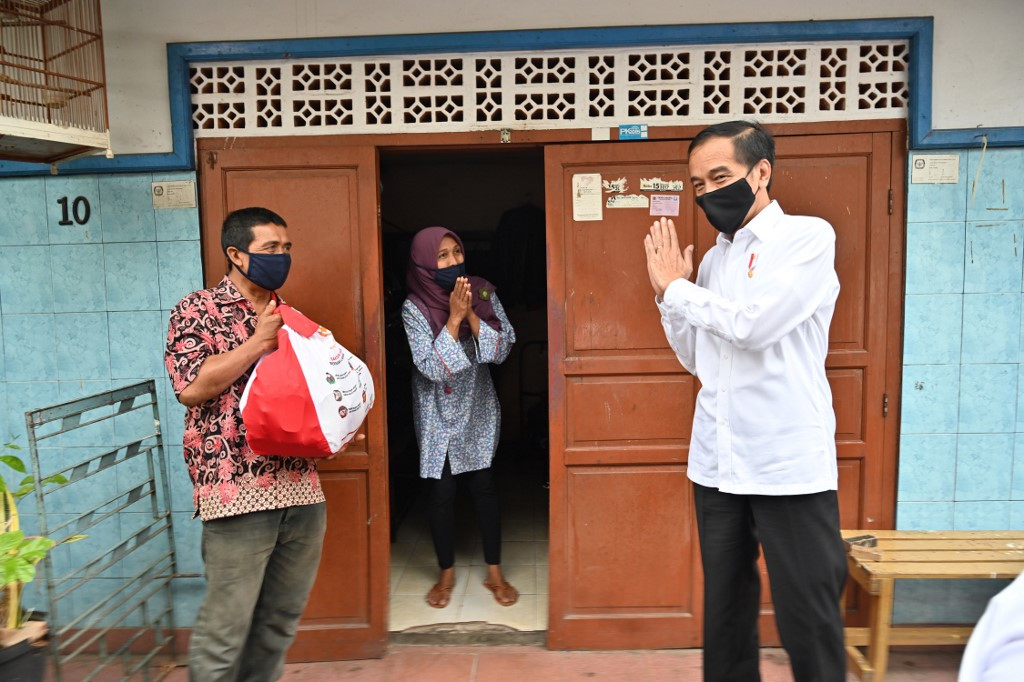Popular Reads
Top Results
Can't find what you're looking for?
View all search resultsPopular Reads
Top Results
Can't find what you're looking for?
View all search resultsDemocracy in time of corona
President Jokowi has in recent weeks taken measures that could weaken the basic foundations of democracy and rule of law.
Change text size
Gift Premium Articles
to Anyone
W
hen students and prodemocracy activists took to the streets of Jakarta and other major cities in the country on May 20, 1998, and one day later rejoiced at the departure of Soeharto’s authoritarian regime, they never thought that a global pandemic would pose a grave threat to Indonesia’s fledgling democracy more than two decades later.
After 22 years, we could all certainly have expected that the danger was over, that Indonesian democracy could finally be consolidated and that it would ultimately be the “only game in town”.
Yet, here we are today, worrying about the current state of our democracy, and as we abide by the stay-at-home order, we grow more concerned whether the COVID-19 pandemic has become the cover for the current political leadership’s authoritarian instinct and intent.
The administration of President Joko “Jokowi” Widodo, who was directly reelected for a second term in 2019, certainly has not chosen the path taken by leaders of some populist regimes in the world, who have quashed democratic rules and norms and accumulated power in their hands, which they claim could help deal with the pandemic more effectively.
But as COVID-19 has ravaged Indonesia’s economy and put massive strain on the country’s healthcare system, President Jokowi has in recent weeks taken measures that could weaken the basic foundations of democracy and rule of law.
Regulation in Lieu of Law (Perppu) No. 1/2020 is the first major sign of the country running toward an aberration of democracy. Not only has the state budget deficit been extended beyond the legal cap of 3 percent of gross domestic product, officials who order spending for programs related to COVID-19 will be protected from any criminal charges. It was this absence of accountability from Soeharto’s New Order regime that brought students and activists onto the streets in the late 1990s.
There has also been an increase in efforts to silence government critics during the COVID-19 pandemic. In late April, independent researcher Ravio Patra was dragged from his home in Menteng, Central Jakarta, and sent to a police detention center after sending tweets and writing an op-ed critical of government policies. Ravio’s arrest followed a series of heavy-handed actions taken by the police in dealing with initiatives by grassroots activists.
In recent days, we have also learned that even on issues not related to COVID-19, the central government has taken steps to accumulate ever more power. Government Regulation (PP) No. 17/2020 on the management of civil servants gives the President full power and very arbitrary authority to promote, demote or fire any civil servant. The amendment of the 2009 Coal and Mineral Mining Law is basically a recentralization of authority to issue permits for mining operations, reportedly in the interest of coal barons.
Up until the coronavirus first struck, we were accustomed to believe that democracy could die from a military coup, the emergence of a populist leader or a communist take-over. However, during this pandemic, with more and more governments following their authoritarian instincts, we could soon see democracy wither in silence and darkness.










